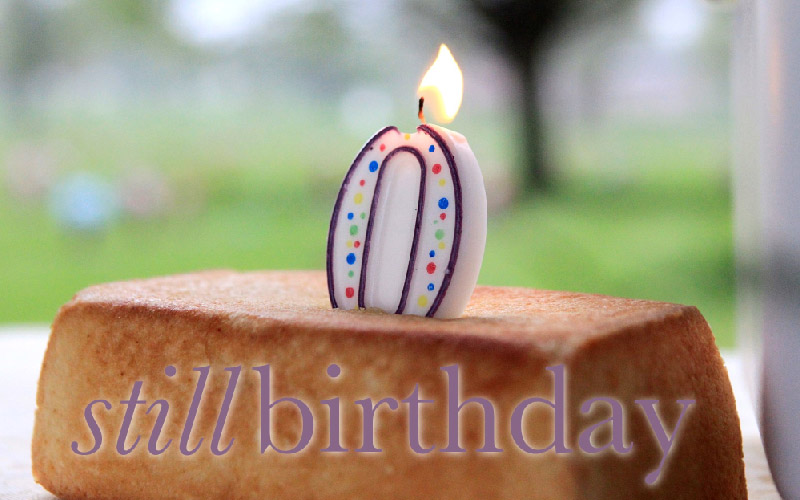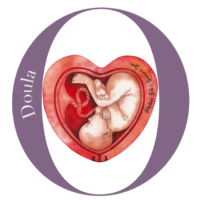How does one grieve well?
It is a question I have come to ponder often in the months since my pregnancy loss.
My doctor told me that her practice intentionally brushes off the reality of the actual life of miscarried babies, relieved to rely on the medical terminology of “products of conception” rather than say that what once had a heartbeat and a due date now is not alive.
She shared that it had been her assumption that mothers move on faster that way.
Is faster better? It is something I have set out to disprove since my loss, and I believe with all certainty that acknowledging the loss as an actual baby helps identify what the mother is experiencing, and by allowing her to identify that, she is better equipped to move through it.
So, how do you know you are really moving through your grief?
Are you expected to act a certain way, talk a certain way, and are you expected to demonstrate a consecutive and consistant move from a place of visible unhappiness into a place of visible happiness? Who is charged with assessing this progress, and against what measurement do they use?
Because these things are so subjective and so individual, I decided to take my questions to scripture.
In the Old Testament, Moses brought the Israelites out of Egypt, and in no ordinary way. What were ten plagues to the Egyptians were to be interpreted as ten miracles to the then enslaved Israelites. Building on each other and leading to a crescendo of both preservation and bloodshed, the Israelites had a firsthand account to verify that God indeed was for them.
Then, Moses led them away from Egypt – again, in no ordinary way. Moses used his staff, a simple walking stick, and with the physical demonstration of lifting it up and intentionally and firmly bringing it back down, his actions proved to everyone – to his followers but also to the enemy, that he had faith that God would provide an answer. The waters opened, revealing a magestic water-walled hallway, held apart by nothing less than God’s power. Even the ground they walked on was perfectly dry. Just the thought is so marvelous and brilliant, and yet, the enemy believed that somehow they too could partake in this gift that was clearly not indended for them, but to protect the Israelites from them. They pursued their freed slaves. And while every Israelite made it safely to the other side of the sea, the water walls crashed down, returning to their natural state, swallowing the enemy within the waves.
Miracle after miracle were presented to the Israelites, each intended to sustain them through their challenges and doubts.
All they had to do was hold onto faith.
The large group of freed slaves traveled through the wilderness for a time, until they reached what would be their Promised Land. Moses instructed 12 men to investigate this foreign land, which was occupied – other people, strangers, were already living there.
When the men returned, ten of them spoke of the inhabitants with great fear and doubt, instilling discouragement among this group of travelers. There was no way, they believed, that they could ever defeat these people in their promised land and claim the land as theirs.
Because of their doubt, God proclaimed that none of them would then, ever enter into the Promised Land, and what’s more, because of the strength of the doubt and fear throughout the entire group of Israelites, none of the men 20 years old and older would enter the Promised Land. That’s right, none of them – except the ones who voiced their faith.
This group of freed slaves were doomed to wander for 40 years, until the last of the men died. Only then would the next generation inhabit the new land.
What would you do if you were told that you wouldn’t be able to ever get what you wanted in this life? And on top of that, you were told to follow instructions that you knew would leave you wandering, all the rest of your life?
Needless to say, the complaining continued throughout the travels, and there were various incidents that took place: a small group of people thought they could petition God to change His mind (Numbers 14:39), but they disobeyed their leader in the process and their efforts proved futile. Another group rebelled against Moses and challenged his leadership (Numbers 16). They had opportunity to back down and submit to the rightful authority, but chose not to, and this ended in their demise. The people complained about the food they had, although it was always provided. The people tried to break the rules regarding storing the food, which was a lesson in trusting for the provision of each day. The people compained about being thirsty. They complained a lot, about continuing to move forward. A common complaint throughout all of these stories is,
“Why did you take us out of Egypt?”
And yet, through all of their complaining, there is not a single story of anyone turning back.
Imagine being a 30 year old man, in this group. You are promised to wander in wilderness for the rest of your life. You will never get the desire of your heart, to have home and rest. And yet each morning you awake with the same group, eat the same ration of food provided by God, and continue to shuffle along in the same shoes (the Bible tells us that their shoes never wore out – isn’t that interesting?), knowing you will be doing this for the rest of your life.
What was there to hold onto? Why keep moving forward?
I believe the decision to continue to move forward is based in a number of things. I think at one level was fear. The fear and understanding that even worse could happen – to the person who flees and to the rest of the group. But I also believe that there must have been a point of acceptance. Of simply understanding that things now are better than they were before, that God has blessed them with the experience of not being trapped, and recognizing that being on the path of wandering was exactly where God wanted them to be.
Have you ever felt as though the path of wandering is exactly where God wants you to be?
I cannot go backward. I cannot go back to my fourth pregnancy and have those fleeting weeks returned to me. They are gone. Consumed by the waves of time and history. I cannot run away and somehow have my miscarried baby be somewhere else. I will live the rest of my life, rising each day, knowing that this life will never bring me my miscarried baby.
I go forward.
I know that at the end of my life, I will reach my Promised Land. But each day, I wake up, and collect the blessings that God has granted for me. I see my other children and my husband and our warm house, our warm food and warm love. I recognize all of the gifts He gives and I remember all of the miracles.
But, sometimes, I complain. My heart cries out as I remember the finality of seeing my lifeless baby on the ultrasound monitor. I remember the total ache of my body laboring, knowing the doom that it was. I can recall how very heartbroken I was when I saw my baby, and how deeply I wept and how passionately I told him that I was sorry for not protecting him.
I see these things in my mind as things from my past, but I don’t relive them.
I don’t go back.
The Bible gives us another account of the importance of moving forward in Genesis 19. God allowed Lot and his family to leave what they believed to be their homeland, a place where they settled but that was filled with destruction and sin. God destroyed the entire place, but granted Lot and his family a safe departure, with the one stipulation that they were not to look back. Just, keep moving foward, is all they had to do. Well, Lot’s wife turned back. She didn’t just turn back, she looked back, in longing of all she felt she had lost. Because she deliberately disobeyed God, she was turned into a pillar of salt, right there.
Christians know that salt has value. It preserves, and it gives flavor. But too much of it makes for bitterness, too much can be harmful, and too much can be painful. She didn’t just remember her past; in her heart, she wanted to go back. She allowed for too much salt. In her loss, she didn’t go foward, she went backward. And it destroyed her.
The Bible gives us one more view of behaving through grief.
In the book of Ruth, we read the story of Naomi. Naomi had a husband and two sons. The story explains how the husband died, and the two sons both married Moabite women. They were married for about 10 years, when both of the sons died.
In a period of 10 years, Naomi lost her husband and both of her sons, in a time when the judges ruled, which means she had very little protection or rights. How was she even going to eat? She instructed her two daughters-in-law to go back to their homeland and to their gods (Ruth 1:15). One of the daughters did, but the other, Ruth, stayed with her.
Where did they go? They went forward. The went to Bethlehem.
Yet, even though they went forward, Naomi was still grieved over her losses. When the two women arrived, Naomi told the people that they should no longer call her Naomi (which means “pleasant”), but instructed the people to call her Mara (which means “bitterness”). She was hurt and grieving!
What happens in this story? Ruth is presented with a unique situation, and in the end, Naomi uses her wisdom and insight to bless Ruth tremendously, beyond what she could have ever imagined. In the end, Naomi indeed returns to “pleasantness”.
My pastor, who shared a sermon on this story to hundreds of people one Sunday morning but who had no idea how this message was for me in particular, summed up this lesson with four important points that I think will bless you, too. God can lay out the perfect path for us, whatever that path may look like, and even though we follow it, our steps may occasionally be imperfect. These four points will make sure you stay the path:
- When you are grieved, continue to move toward the Promise.
- Go forward.
- Don’t go alone. Get help when you need it and rely on those whom you trust.
- As you go, believe God’s faithfulness.












